It is undeniably very important to look after your health and well being. Minor illness like headache, runny nose, aches and pains, insect bites etc. are easily treatable at home.
Your pharmacists are generally accessible anytime when you need help with medicines. At online Chemist, our pharmacist is a phone call away.
You can be prepared for most common minor illnesses by keeping some common medications in your medicine cabinet at home.
We have listed the 7 essential medications with a brief description. The list below is not exhaustive, but it will help you to deal with most minor illnesses. You can add more categories or remove depending on personal circumstances.
Paracetamol is a common pain killer. You can take them for aches and pains. It is also commonly used for reducing high temperature (fever).
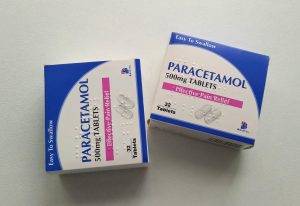
1 or 2 tablets/capsules up to every 4 to 6 hours, maximum 8 tablets in 24hours.
Paracetamol is safe to take in pregnancy and breastfeeding.
Do not take more than 2 tablets (1g) at a time or more than 8 tablets (4 g) in 24 hours.
Do not take other paracetamol containing medication at the same time.
Also available as a liquid for children or for people who can’t take tablets.
Ibuprofen is a non-steroidal anti-inflammatory drug (NSAID). It reduces inflammation, hence helps to decrease swelling, pain, or fever.
Ibuprofen is used to relieve pain from various conditions such as headache, dental pain, period pain, muscle aches, or arthritis.
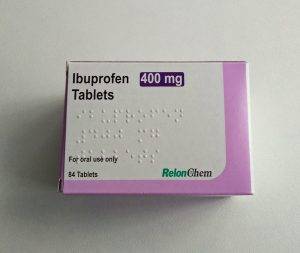
Take one or two 200 mg tablets 3 times a day with food or a drink of milk to reduce the chance of an upset stomach. Do not take it on an empty stomach.
Not suitable for pregnant women, patients suffering from stomach ulcer, asthma, high blood pressure etc
Do not take it in an empty stomach.
Ibuprofen is safe to take by mouth or use on your skin if you are breastfeeding.
Ask your pharmacist or call Online Chemist before you take ibuprofen if you are on other medicines
Available as tablets, capsules, liquid and gel
Antihistamines are medicines often used to relieve symptoms of allergies, such as hay fever, hives, conjunctivitis and reactions to insect bites or stings.
Antihistamines are of two main groups:
Drowsy-antihistamines, make you feel sleepy – such as Chlorphenamine (Piriton)
Non-drowsy antihistamines, less likely to make you feel sleepy – such as Cetirizine, Loratadine
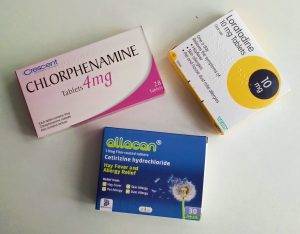
The common side effects are sleepiness, dry mouth, blurred vision
Available as tablets, capsules, liquids, syrups, creams, lotions, gels, eye drops and nasal sprays.
Its not safe to drive or use machineries after taking sedative (drowsy) antihistamines.
Heartburn and acid reflux are the same thing – when the acid from your stomach comes up to your throat. You’ll have a burning feeling when this happens. This can be a symptom of indigestion.
You can take indigestion remedies if you suffer from heartburn– a painful burning feeling in the chest, often after eating or you are feeling full and bloated, feeling sick, belching and passing wind or bringing up food or bitter tasting fluids.
There are lots of over the counter indigestion remedies available, popular ones are Gaviscon, Rennie, Zantac
Dose is varied, so follow the instructions on the package of medication.
It’s best to take indigestion treatment with food or soon after eating because this is when you’re most likely to get indigestion or heartburn.
Pregnant women often get indigestion. It’s very common from 27 weeks onwards.
Not all indigestion medicines are suitable for everyone. Check with your pharmacist or call Online Chemist.
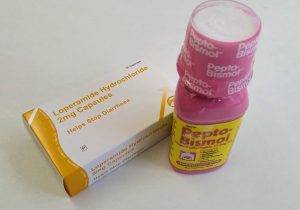
Diarrhoea is when you have frequent and liquid bowel movements. Many things can cause it, including viruses, bacteria and parasites, medicines such as antibiotics, digestive disorders such as coeliac disease or irritable bowel syndrome.
Most of the time Diarrhoea doesn’t require treatment and usually lasts only a couple of days. But medicine can help you feel better. It especially helps if you also have cramping or stomach pain.
The most common antidiarrhoeal medicines include loperamide (Imodium), bismuth subsalicylate (Pepto-Bismol). Dioralyte relief.
Please read the directions on the package or in the information leaflet inside the package. This will tell you how much medicine to take and how often to take it.
If you have a “stomach bug,” your body needs to get rid of the bacteria or parasite that is causing the diarrhoea. Stopping the diarrhoea, in this case, can make your condition worse. So do NOT take antidiarrhoeal remedies. However, you can take Dioralyte to replace the salt and water, that you are loosing with loose stool.
Don’t take loperamide if you have bloody or black stools. These may be signs of a more serious problem, such as a bacterial infection.
If you are allergic to aspirin, you should not take bismuth subsalicylate. Don’t give bismuth subsalicylate to children 12 years of age or younger.
Hydrocortisone creams, ointments – also known as steroid. They are used on the skin to treat swelling, itching and irritation – eczema, psoriasis, contact dermatitis, prickly heat rash, insect bites and stings etc.
Hydrocortisone creams or ointments are available to buy at 0.1% to 1%.
Use hydrocortisone cream sparingly once or twice a day for a week or two.
Do not use in children under 10 years old unless their doctor recommends it.
Never put on your face unless your doctor says it’s ok and has given you a prescription for it.
It can make some skin problems of the face worse – such as impetigo, rosacea and acne.
Be careful not to get the cream into broken skin or cuts.
Wash your hands afterwards (unless it’s your hands that you’re treating).
Moisturisers or Emollients are applied directly to the skin to soothe and hydrate it. They cover the skin with a protective film to trap in moisture.
Emollients are often used to help manage dry, itchy or scaly skin conditions. They help prevent patches of inflammation and flare-ups of these conditions.
There are lots different brands available, my favourite ones are Aveeno cream, Epaderm ointment, Doublebase gel and Dermol lotion (as soap substitute), Sudocrem (nappy rash, chilblain).
Moisturisers should be applied directly to the skin 3 or 4 times a day. They should be smoothed, not rubbed, into the skin gently in the same direction that your hair grows. This helps prevent hair follicles getting blocked.
If you’re using a steroid cream or another treatment for your skin condition, wait at least 30 minutes after putting on moisturiser. Then apply steroid or another treatment.
Keep away from fire, flames and cigarettes when using all types of emollients (both paraffin-based and paraffin-free).
Be careful not to slip when using emollients in a bath or shower, or on a tiled floor.
https://www.youtube.com/watch?time_continue=21&v=GIqROxnAK5k
Extra things you might want to keep at home:
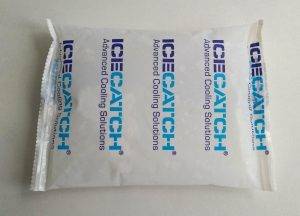
Always follow the directions on medicine packets and information leaflets, and never exceed the stated dose.
Always keep medicines out of the sight and reach of children. A high and lockable cupboard in a cool, dry place is ideal.
Regularly check the expiry dates. If a medicine is past its use-by date, don’t use it or throw it away. Take it to your pharmacy, where it can be disposed of safely.
If you have further questions about any of these medicines or you want to buy them, ask our pharmacist at Online Chemist on 01493 600610.
Online Chemist aims to provide safe and comfortable pharmacy services to you and your family. So there is no more stress about getting your NHS repeat prescriptions.
Registering with Online Chemist means your only worry left is to take your medications on time, every time.
We are
NHS contracted pharmacy
GPhC & MHRA regulated chemist
Dementia friendly
Based in Gorleston, Great Yarmouth, Norfolk NR31
Online Chemist also runs travel vaccines clinic at Gorleston, Great Yarmouth. We provide comprehensive travel advices, travel vaccinations and malaria prophylaxis tablets at affordable price.
No consultation fee
Urgent appointment available
Experienced pharmacist
We are approved YFVC by the NaTHNaC
Ref: www.nhs.uk
Authored by:

BPharm, MPharm, PGDip (Pharmacy), MRPharmS, IP
Pharmacist Independent Prescriber
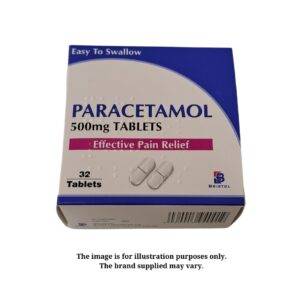
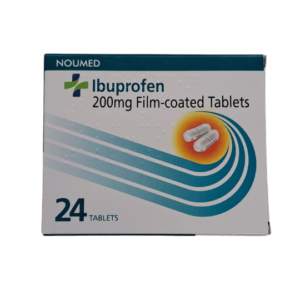
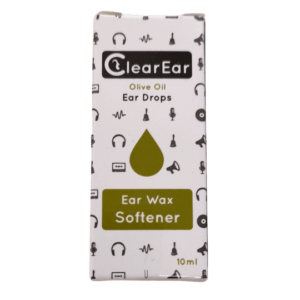
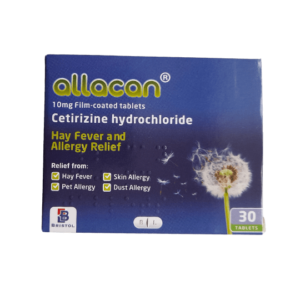
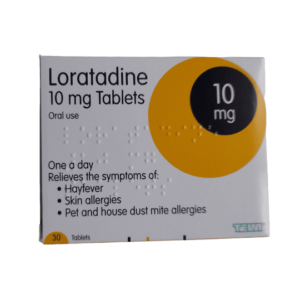
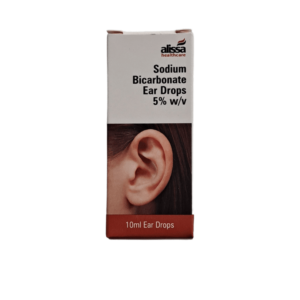
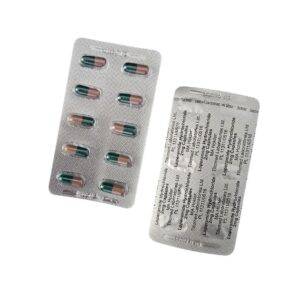
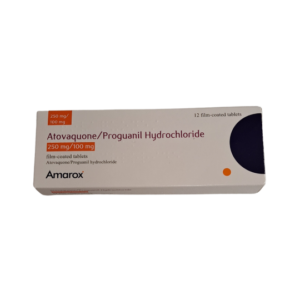

Online Chemist
82 Middleton Road
Gorleston
Great Yarmouth
Norfolk, NR31 7AH
Phone: 01493 600610
Email: info@onlinechemistuk.net
Superintendent Pharmacist:
Obaidullah Zaman
BPharm, MPharm, PGDip (Pharmacy), MRPharmS, IP
GPhC Reg. Number: 2083409
Pharmacy Premises GPhC Reg. Number: 9011159
Monday 09:00 – 17:00
Tuesday 09:00 – 17:00
Wednesday 09:00 – 17:00
Thursday 09:00 – 17:00
Friday 09:00 – 17:00
Saturday Closed
Sunday Closed
Click here for driving directions
OnlineChemist is a trading name of Nomaz Limited.
Registered in England – 11349276.
© 2025 All rights reserved.